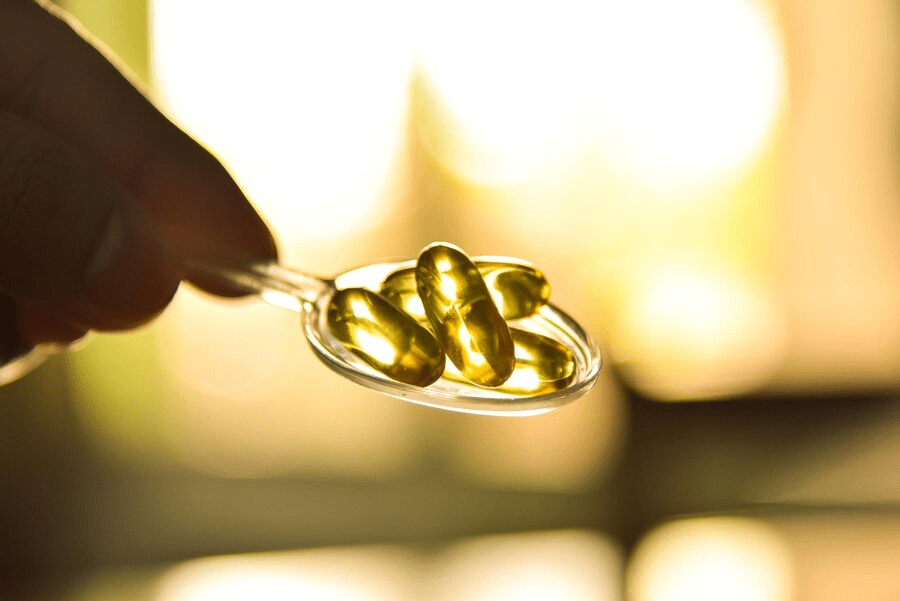
Gene therapy for azoospermia treatment
Introduction Male infertility, especially caused by azoospermia, affects millions of men worldwide. For those suffering from non-obstructive azoospermia, treatment options have been limited. However, thanks

Infertility affects millions of couples worldwide, and surprisingly, male factors contribute to nearly half of all cases. One of the most important yet often overlooked aspects of male fertility is proper nutrition, especially the right intake of essential vitamins. If you’re looking to improve your reproductive health, understanding the best vitamins for healthy sperm production is crucial.
In this comprehensive guide, we’ll explore which vitamins are essential, how they impact sperm health, and practical ways to include them in your daily life. Let’s get started!
Sperm health is critical for successful conception. Healthy sperm must have:
Proper quantity (sperm count)
Good movement (motility)
Correct shape (morphology)
Strong DNA integrity
Poor sperm quality can reduce the chances of fertilization or lead to pregnancy complications. Fortunately, certain vitamins can significantly enhance sperm parameters, leading to better fertility outcomes.
Let’s dive into the essential vitamins that play a vital role in sperm health.
Vitamin C is a powerful antioxidant that protects sperm from oxidative stress. Oxidative damage can harm sperm DNA, reducing motility and viability.
Benefits:
Increases sperm count
Improves motility
Protects sperm from DNA damage
Sources:
Oranges
Strawberries
Broccoli
Red peppers
Kiwi
Tip: Aim for at least 90 mg of vitamin C per day, or more if advised by a healthcare professional.
Like vitamin C, vitamin E acts as a strong antioxidant. It helps protect sperm membranes from free radical damage, supporting overall sperm quality.
Benefits:
Enhances sperm motility
Improves fertilization ability
Protects against oxidative stress
Sources:
Almonds
Sunflower seeds
Spinach
Avocado
Olive oil
Tip: Vitamin E works even better when combined with vitamin C, providing double protection against oxidative stress.
Recent studies show that vitamin D plays a significant role in male fertility. Low vitamin D levels are linked to reduced sperm motility and testosterone production.
Benefits:
Boosts testosterone levels
Enhances sperm motility
Supports overall reproductive health
Sources:
Sunlight exposure
Fatty fish (salmon, mackerel)
Fortified dairy products
Eggs
Tip: Spend at least 15–20 minutes in the sun daily or consider a supplement if your vitamin D levels are low.
Vitamin B12 is crucial for DNA synthesis and cellular health. A deficiency can lead to poor sperm production and abnormal sperm shapes.
Benefits:
Increases sperm count
Improves sperm motility
Reduces DNA fragmentation
Sources:
Shellfish
Beef liver
Eggs
Fortified cereals
Dairy products
Tip: If you’re vegetarian or vegan, consider a B12 supplement, as plant-based foods often lack this vitamin.
Folate works together with vitamin B12 to support DNA replication and cell division. Low folate levels are associated with sperm abnormalities and reduced fertility.
Benefits:
Supports sperm DNA integrity
Enhances sperm quality
Reduces the risk of birth defects
Sources:
Leafy greens (spinach, kale)
Asparagus
Beans
Fortified cereals
Oranges
Tip: Many multivitamins include folate, but getting it from natural foods ensures better absorption.
Though technically a mineral, zinc is just as important as any vitamin for sperm health. Zinc deficiency is strongly associated with low testosterone levels and poor sperm quality.
Benefits:
Increases sperm count
Improves sperm motility
Boosts testosterone production
Sources:
Oysters (highest source)
Beef
Pumpkin seeds
Chickpeas
Cashews
Tip: Combine zinc with vitamin C or E to maximize its fertility benefits.
Again, not a vitamin but an important antioxidant. CoQ10 improves sperm energy production and motility.
Benefits:
Increases sperm concentration
Enhances sperm movement
Reduces oxidative damage
Sources:
Fatty fish
Chicken
Peanuts
Spinach
Organ meats
Tip: Many fertility supplements now include CoQ10 for its proven benefits on male fertility.
| Vitamin | Main Benefit | Impact on Sperm |
|---|---|---|
| Vitamin C | Antioxidant protection | Higher count, better motility |
| Vitamin E | Protects sperm membrane | Improved fertilization ability |
| Vitamin D | Boosts testosterone | Enhanced motility |
| Vitamin B12 | Supports DNA synthesis | Increased count, reduced abnormalities |
| Folate | Assists in cell division | Stronger DNA, healthier sperm |
| Zinc | Boosts testosterone and immunity | Improved motility and morphology |
| CoQ10 | Enhances energy production | Better motility and vitality |
Now that you know the importance of vitamins for healthy sperm production, here’s how you can naturally boost your intake:
Eat a balanced diet with plenty of fruits, vegetables, lean proteins, and healthy fats.
Include a variety of colors in your meals to ensure a wide range of nutrients.
Consider a high-quality multivitamin formulated for male fertility if advised by your doctor.
Avoid processed foods, excessive alcohol, and smoking — all of which can harm sperm health.
Stay hydrated to support nutrient absorption.
While food sources are the best way to obtain vitamins, sometimes supplements are necessary, especially if you have a diagnosed deficiency. Always speak with a healthcare provider before starting any supplement routine.
When choosing supplements, look for:
Clinically-tested brands
Bioavailable forms of vitamins (e.g., methylcobalamin for B12)
Balanced formulations targeting male fertility
Remember, supplements are meant to complement, not replace, a healthy diet.
Besides focusing on vitamins, improving other lifestyle factors can greatly enhance sperm quality:
Maintain a healthy weight: Obesity can lower testosterone and sperm count.
Exercise regularly: Moderate physical activity boosts hormone health.
Manage stress: Chronic stress can affect hormone production negatively.
Sleep well: 7–8 hours of quality sleep is essential for optimal fertility.
Avoid overheating the testicles: Stay away from hot tubs, saunas, and tight underwear.
Limit exposure to toxins: Pesticides, heavy metals, and radiation can all harm sperm.
A holistic approach combining nutrition, supplements, and healthy habits offers the best chance of improving fertility.
Q1: How long does it take for vitamins to improve sperm health?
A: Sperm development takes about 72–90 days. Consistent vitamin intake can show improvements in 3–4 months.
Q2: Can taking too many vitamins harm sperm?
A: Yes. Excessive doses of certain vitamins, like vitamin E or A, can cause toxicity. Always follow recommended doses.
Q3: Is vitamin supplementation enough for fertility?
A: While helpful, vitamins work best when combined with a healthy diet, regular exercise, and good lifestyle habits.
Q4: Which vitamin is the most important for sperm health?
A: There’s no single “most important” vitamin. A balanced intake of antioxidants like vitamin C, E, zinc, and folate is crucial.
Taking care of your reproductive health starts with what you put on your plate. Prioritizing vitamins for healthy sperm production is one of the smartest moves for any man planning to conceive.
By focusing on nutrient-rich foods, considering smart supplementation, and maintaining a healthy lifestyle, you can significantly boost your fertility potential.
Remember, small daily choices create powerful results over time. Start today, and give yourself the best chance of a successful and healthy journey toward fatherhood!

Introduction Male infertility, especially caused by azoospermia, affects millions of men worldwide. For those suffering from non-obstructive azoospermia, treatment options have been limited. However, thanks

Azoospermia is one of the most challenging causes of male infertility, often leaving men with few options and couples struggling to conceive. But today, an
PROLISTEM® is a Patented Formula
Copyright © 2025 Prolistem®